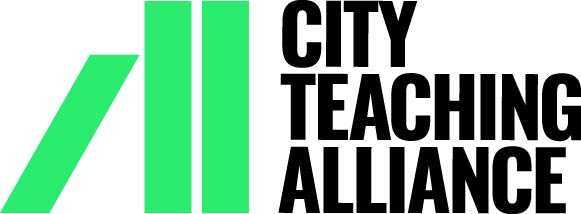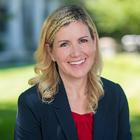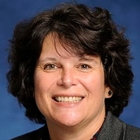Master of Arts in Teaching
Educators and learners today face real challenges. The Economic Policy Institute notes that “the teacher shortage is real, large, and growing, and worse than we thought.” This need is especially pressing in areas such as special education, STEM subjects, and high-poverty schools, where credentialed teachers can make a particularly meaningful difference.
Developed on the idea that passionate, well-prepared, and progressive-minded teachers are key to sustaining a just and democratic society the MAT degree program prepares current and aspiring educators to provide an equitable and transformative education to all students, regardless of race, socioeconomic background, or learning disabilities.
The Master of Arts in Teaching program prepares you to honor the uniqueness of every student and to build classrooms where all learners feel seen, valued, and supported. Rooted in a mission of inclusivity, the curriculum weaves together neurodevelopmental research, social-emotional practices, and a multidisciplinary approach to teaching, equipping you to turn learning differences into learning strengths.
Less than 2 Years
To complete - 30-36 credits
 Online or On Campus
Online or On Campus
Chose the program that meets your needs
Earn a Teaching License
With no prior experience necessary. The DC, Maryland, and Virginia licensure may transfer to 48 states
 No GRE Exam
No GRE Exam
Required to apply
Concentrations:
- Early Childhood Education (On Campus)
- Elementary Education (On Campus or Online)
- English to Speakers of Other Languages [ESOL] (On Campus)
- Secondary Education (On Campus)
- Special Education (Online)
- Special Education: Learning Disabilities (On Canpus or Online)
The Master of Arts in Teaching Cohort Experience
Peer learning and a sustained learning network are essential hallmarks of the MAT program. As a result, students will progress through the program as part of a cohort, taking the same courses and accomplishing program milestones together. We intentionally build a diverse cohort of students to contribute to the dynamic learning environment in the program. Learning will occur through robust dialogue, shared learning experiences, and presenting current professional work and shared learning experiences.
L earn more about our City Teaching Alliance Partnership for Teacher Preparation here.
earn more about our City Teaching Alliance Partnership for Teacher Preparation here.

Career Opportunities
- Arlington County Public Schools
- Catholic Diocese of Arlington
- The Chapin School
- District of Columbia Public Schools
- Eagle Academy Public Charter School
- Friendship Public Charter Schools
- KIPP Metro Atlanta School & KIPP DC
- The Lab School of Washington
- McLean School
- Montgomery County Public Schools
- Two Rivers Public Charter School
- The Woods Academy
Curriculum
Academic Support Team
Receive comprehensive guidance and support from the time of application through graduation.
The Cohort Experience
Progress through the program as part of a cohort to build a sustained learning environment through peer learning.
Clinical Experience
Gain 600 hours of invaluable hands-on experience, guided by an experienced educator, in a local classroom.
Graduate Placement
100% placement rate in the
workforce within 6 months of graduation
Concentrations within the Master of Arts in Teaching

Early Childhood Education
33 Credits | In Person
This concentration prepares you for a rewarding career in educating and supporting young children from Pre-K through grade 3. This graduate degree focuses on providing you with the advanced skills and knowledge needed to effectively teach and nurture children during their crucial developmental years. Graduates go on to teach; direct early childhood centers; public, private, or charter schools; become early intervention specialists; and more.

Elementary Education
33 Credits | In Person or Online
This concentration prepares you for a rewarding career focused on educating young students in elementary school settings, typically grades 1-6. The program blends theory and pedagogy with applied skills to ensure that students are equipped to maximize learning and achievement outcomes for students in a variety of public, charter, parochial, and private school settings. Graduating with licensure to practice in DC, or transfer to 48 states.

English to Speakers of Other Languages (ESOL)
36 Credits | In Person
Learn cutting-edge teaching skills to teach English to speakers of other languages.
During your course of study, you'll gain practical, hands-on teaching experience through involvement with local schools serving English language learners. Graduates go on to teach English to students in grades PK-12.

Secondary Education
30 Credits | In Person
Graduate ready to teach grades 7-12 with concentrations in English, social studies, math, biology, chemistry, and physics, even if you've not taught before.
Get practical experience through student teaching in real classroom settings, and upon passing the required licensure exam, teach in DC or transfer licensure to 48 states.

Special Education
33 Credits | Online
Prepares you to meet the needs of preschool, elementary, middle, high school, and adult students in need of specialized education. It addresses students’ academic, social, emotional, and vocational outcomes, extending beyond cognitive and language-based learning disabilities. Available in full-and part-time tracks can be completed in as little as one year.

Special Education: Learning Disabilities
30 Credits | In Person or Online
Graduate are prepared to teacher meeting the specific needs of preschool, elementary, middle, high school, and adult students living with learning disabilities. Available in full-and part-time tracks can be completed in as little as one year.
Upcoming Teacher Education (MAT) Open House
Join Us at an Open House
Tuesday, October 14 from 7-8pm (ET)
Contact teachered@american.edu with any questions.
Hands-On Student Teaching
Difference Between Observation Hours and Fieldwork
For student teachers, observation hours occur through virtual meetings with the cooperating teacher for individual guidance, while fieldwork offers hands-on experience to apply and develop practical teaching skills in a local classroom setting.
How the Placement Process Works
The field placement process starts with a field placement survey and orientation. Coordinators match students with schools based on interests and location in most places throughout the United States. Each teacher candidate will participate in two grade-level placements, providing diverse classroom experiences.
Support for Student Teachers
As a MAT student, you will have a dedicated university coach to support you throughout your field experience. They will conduct initial meetings with your cooperating teacher, analyze lesson plans, observe your teaching, and ensure you meet all necessary requirements and hours.
Benefits of Hands-On Teaching Experience
Student teaching offers supervised classroom experience where you apply your knowledge and theory in practice. This hands-on learning fosters growth through reflection, connection, and real-world application of teaching methods.
Expectations of Student Teachers in the Classroom Environment
Fieldwork spans two semesters. In the first semester, you’ll engage in a practicum, spending two days a week in a local classroom to observe and learn. In the final semester, you’ll complete your student-teaching requirement, spending five days a week in a classroom to apply and enhance your teaching skills.
Current School Employees
Current paid teachers (instructional assistant or teacher of record) who would like to use their current employment in a school as a placement must be aware the placement is contingent upon approval from the Field Placement Coordinator. To support SOE’s mission and vision, all field placements must meet specific standards.
Job Opportunities
An MAT prepares graduates for a variety of professional roles. This naturally includes teaching children, but their pedagogical and organizational skills can also be useful in teaching adults, designing curricula for others, and leading education staff.
| Job | Median Annual Salary |
|---|---|
| Education administrator | $103,460 |
| Curriculum specialist | $96,000 |
| Educational consultant | $82,000 |
| Instructional coordinator | $74,620 |
| Training and development specialist | $64,340 |
| Kindergarten or elementary school teacher | $63,670 |
| Adult educator | $60,560 |
Summer 2026 Master's Program Key Dates
- Priority Scholarship Deadline: November 11, 2025
- Priority Application Deadline: March 23, 2026
- Final Application Deadline: April 20, 2026
- Final Deposit Deadline: May 1, 2026
- Classes Begin: May 11, 2026
National Rankings and Research Excellence
American University’s School of Education continues to earn national recognition for its excellence and innovation. In the 2025 rankings, it was named No. 31 for Best Education Master’s Degree School in the U.S. (College Factual), received GOLD recognition for Global Online Learning (Times Higher Education), and ranked No. 19 in the nation for Co-Ops and Internships (U.S. News & World Report).
Additionally, American University has received the prestigious R1 designation from the Carnegie Classification, the highest recognition for doctoral research institutions in the United States. This designation underscores the university’s leadership in advanced research. It connects students with faculty, staff, and peers who generate innovative ideas and translate their research into practical applications through inclusive, interdisciplinary collaboration.
Select Master of Arts in Teaching Faculty Members

Sarah Irvine Belson Professor SOE | General Academics & Research

Carolyn Parker Hurst Senior Professorial Lecturer and Director, Graduate Teacher Education and Academic Programs SOE | General Academics & Research

Antonio Ellis Senior Professorial Lecturer and Director of the Institute on Education Equity and Justice SOE | Online Partner Programs (OLP)
FAQs
May I apply with no prior education experience?
While MAT applicants* must hold a bachelor's degree, they are not required to have a specific prior degree or experience in an educational field or otherwise. We value a wide range of backgrounds in our students. If our social mission resonates with you, we encourage you to apply.
*Secondary education students must have a bachelor's degree in the area or closely related to their area of licensure.
How quickly can I complete the Master of Arts in Teaching?
If you begin the program in a summer semester, you may complete the degree in 15 months, with the majority of students completing their degree in two years.
Will I graduate with a teaching license?
Students will be eligible for licensure when they complete their MAT degree program and apply to the state/DC for the appropriate credential, and successfully pass certification exams.
What are the pedagogical and theoretical groundings for instruction in the MAT degree program?
American University’s MAT degree program finds a firm foundation in the democratic ideals that our institution holds dear. With that foundation in mind, the program is grounded in four principles, which influence everything from course design to encouraging collaborations with the projects and organizations with which we partner. Those principles are equity, community, diversity, and excellence.
Students enrolled in the Master of Arts in Teaching can expect an emphasis on cultural competency and diverse perspectives, an interesting and progressive curriculum, a focus on cultivating community among students (no matter where they might be based), and faculty members who are leaders in their fields.
Does the program include hands-on experience?
Hands-on experience is a crucial element in American University’s Master of Arts in Teaching program.
In the MAT program, you will obtain over 600 hours of hands-on classroom experience. We will work closely with you to ensure that you are paired with a high-quality teacher near you, even if you are not in the Washington, DC area.
You will observe the teacher with whom you are paired, and under the teacher’s supervision, you will gradually begin to plan and teach lessons, eventually “taking over” the classroom during the second half of the field experience. The field experience spans two semesters: practicum and student teaching. Coursework throughout the program, starting from the very first day, is designed to prepare you for your time in the classroom.
How quickly can I complete the master’s in teaching online?
To apply for a DC license you must:
-
Successfully pass the PRAXIS Core I and II. Please have your scores sent to American University with institution code 5007 and OSSE with code 7076.
- Complete an online Educator Credential Application for a Regular II Teaching License. The user guidebook details the application process.
Your application should include:
- An official copy of your undergraduate transcript. AU does not have the option for digital transcripts, so you must mail this to OSSE. Directions are in the online application.
- A copy of your Praxis scores to be uploaded to the application system.
- An FBI criminal background clearance. Please note that you must obtain a copy of your fingerprints (see OSSE recommendations) to be submitted to the FBI. Current DCPS employees do not need to be fingerprinted. OSSE will have access to your fingerprints once you complete your application.
For more information, visit the Licensure Information page.
Can I complete my student teaching at my local school district?
We can accommodate a student teaching placement in most places throughout the US. An MOA partnership agreement must be in place with a school district for clinical field placements. Reach out to Field Placement Coordinator Caryn Ash with any questions. If you are a paid employee of a school, please contact Caryn Ash to determine if your paid position may be used as your practicum and/or student teaching.
While you can complete your practicum and/or student teaching in a charter school or private school there, please note that teacher candidates living in the bellow locations do not have existing MOA partnerships in place to allow clinical field placement in these school districts:
-
Chicago
-
New Jersey
-
New York City
Still deciding?
Join us for a virtual information session and hear directly from program faculty and admissions staff about how our degrees are creating transformative education leaders throughout the country. Our webinars dive deep into the curriculum, course load, and expected outcomes of our various online programs and give you a chance to ask any questions you might have.
Admissions
Explore admissions requirements and apply to an online American University School of Education program.
Tuition & Financial Aid
Learn about tuition costs, financial aid, and scholarships you may be eligible to receive as you pursue your educational and career goals.
Student Experience
Discover how our innovative technology, thoughtfully designed curricula, and meaningful partnerships will prepare you to be the transformative educator you aspire to be.
